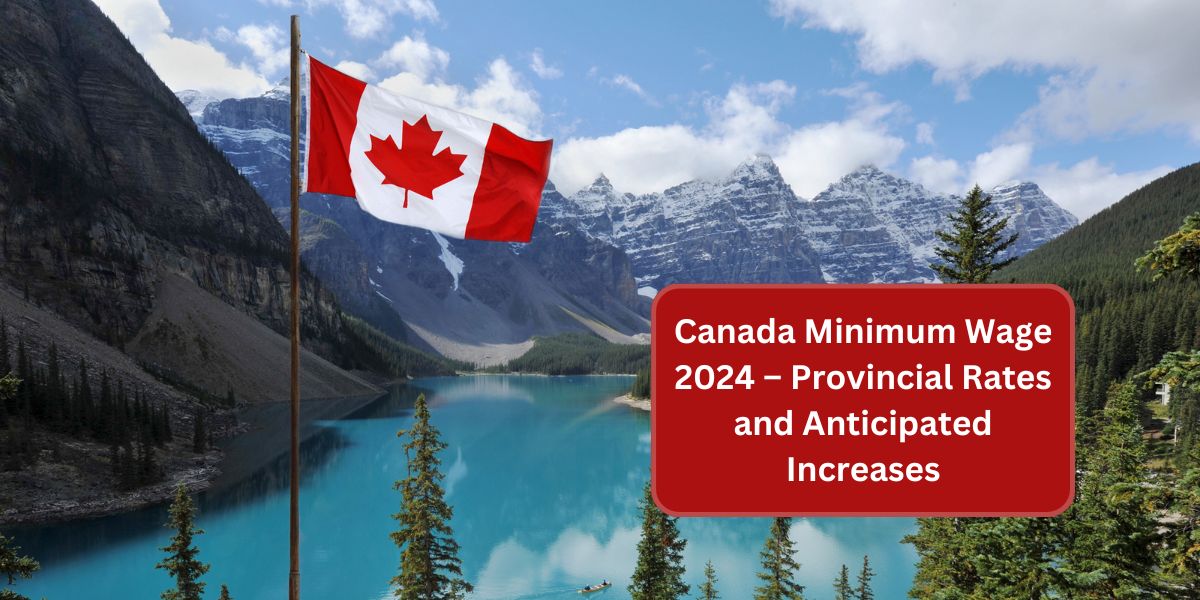Curious about the 2024 updates to Canada’s minimum wage? This article covers the latest changes, province-specific details, and anticipated increases. Minimum wage policies play a crucial role in Canada, impacting millions of workers and ensuring equitable pay nationwide.
Update
Employment and Social Development Canada recently announced an incremental raise in the minimum wage, increasing it from $16.65 per hour to $17.30 per hour. This adjustment, though more modest than last year’s increase from $15.55 to $16.65 per hour, aims to address the challenges posed by rising living costs and inflation in Canada.
The new minimum wage of $17.30 applies uniformly nationwide, establishing a standard base for wage negotiations across all sectors and age groups, whether for teenagers or adults.
| Important Links |
| UK Universal Credit Claimants Eligible for £25 Payment Every Week |
| Finance Assistance Scheme Singapore 2024 |
| CPP Survivor Benefits |
Increase
Effective April 1, 2024, Canada’s new minimum wage rate is set at $17.30 per hour nationwide. However, specific adjustments for provinces such as Nunavut, Quebec, Ontario, and the Northwest Territories have not yet been announced. Reports indicate that Ontario may raise its minimum wage to $17.20 by the end of September 2024. These adjustments typically align with the Consumer Price Index (CPI), which recorded a 3.9% annual inflation last year, influencing wage revisions to accommodate rising living expenses.
Notably, Alberta has maintained its minimum wage unchanged for the past five years, meaning residents in the province will not experience any wage adjustments in 2024. For the latest updates on wage increases, keep an eye on official announcements and bookmark our site for ongoing information.
Provincial Rates
Minimum wage rates in Canada vary by province and territory, typically hovering around $17.30 per hour but varying based on location. Here’s an overview of the 2024 minimum wage rates across Canada:
| Province/Territory | Minimum Wage Rate |
|---|---|
| Alberta | $15.00 |
| British Columbia | $17.40 |
| Manitoba | $15.80 |
| New Brunswick | $15.30 |
| Newfoundland & Labrador | $15.60 |
| Northwest Territories | $16.05 |
| Nova Scotia | $15.20 |
| Nunavut | $19.00 |
| Ontario | $16.55 |
| Prince Edward Island | $15.40 |
| Quebec | $15.25 |
| Saskatchewan | $15.00 |
| Yukon | $17.59 |
The federal government establishes the minimum wage for industries regulated at the federal level, including aviation, banking, and broadcasting.
Implications
The relationship between minimum wage increases and unemployment is intricate. Critics argue that raising wages could potentially lead to reduced hiring as employers seek to manage their labor costs. However, proponents of minimum wage hikes contend that they can stimulate economic growth by enhancing the purchasing power of low-wage earners, thereby boosting demand for goods and services.
Despite recent increases in minimum wage rates, they often fall short in high-cost urban centers like Toronto and Vancouver. In these areas, the steep cost of living, especially housing expenses, poses challenges for workers relying on minimum wage incomes.
Annual adjustments to the minimum wage are crucial to keep pace with inflation and economic dynamics. They help ensure that workers can maintain their purchasing power over time and contribute to overall economic stability and growth.
Raising the minimum wage requires a delicate balance between promoting fair wages and safeguarding employment opportunities. As Canada navigates these policy changes, staying informed about updates will provide insights into how these adjustments impact individuals and the broader economy.
FAQs
What is the federal minimum wage for 2024?
The federal minimum wage is set at $17.30 per hour.
Which province boasts the highest minimum wage?
Nunavut leads with a minimum wage of $19.00 per hour.
Will Alberta raise its minimum wage in 2024?
No adjustments are anticipated for Alberta this year.
How frequently is the minimum wage revised?
It undergoes annual adjustments based on inflation and the Consumer Price Index (CPI).
